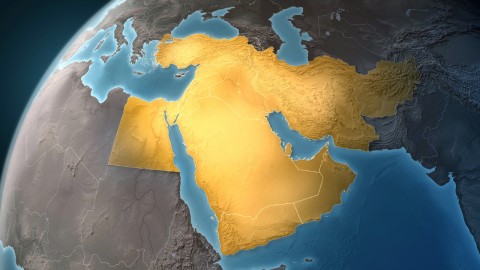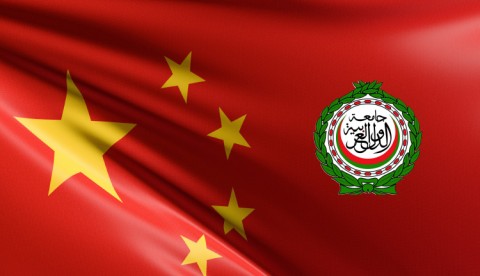Increasing geopolitical uncertainty and rising inflation are among the biggest risk factors for businesses in 2023 and despite the optimistic OPEC outlook for growth of global oil demand in 2023, energy market dynamics remain haunted by these ongoing risks for another year to come.
Here are some of the geopolitical risks to look out for in 2023.
Russia-Ukraine war
Russia’s war in Ukraine passed its 10-month mark in December, with no prospects for a peaceful settlement.
The war has resulted in hundreds of thousands of casualties, forced millions to flee their homes, and has had ripple effects globally on everything from energy to food supplies.
Despite recent advances by Ukrainian troops on some fronts, Russian intensified missile and drone attacks can tell that the conflict is not approaching an end any time soon. Though diplomacy has been successful in reaching important agreements on the export of grains or exchange of war prisoners, it has been unable to bring the two sides to the negotiation table since both sides insist on their demands that are refused by the other party.
In its last peace negotiation proposal, Ukraine said Russia could participate only if it first faces a war-crimes tribunal. That drew an angry response from the Kremlin, with Foreign Minister Sergey V. Lavrov saying that Kyiv must accept all of Russia’s demands, including that it gives up four Ukrainian regions that Moscow claims to have annexed.
Today, both sides believe that going to negotiations to end the war will depend on the strength it shows on the battlefield, thus their only way to peace is a longer and fiercer war.
The continuation of the Russia-Ukraine conflict has fueled Europe’s struggle to free itself from Russian energy that used to dominate European energy imports. This situation has implications for the entire global energy market.
US-China Rivalry
The great competition between the US and China will likely be one of the most important themes to follow in the coming year. The relations between the two superpowers had already soared in 2022.
Although a conflict between US and China remains highly unlikely in 2023, competition and confrontation between the two countries are moving from the trade and technology realms into the military domain. Unfortunately, the escalation of such a conflict will have dire consequences for the whole world.
Last year was tense as China was insistently expanding its global diplomatic and security footprint, challenging US positions in sub-Saharan Africa, Latin America, and the Middle East. The US, meanwhile, teased China with growing relations with Taiwan, which has been governed independently of China since 1949, but Beijing views the island as part of its territory. The commitment of US President Joe Biden to defend Taiwan militarily if China attempted to take control of the island by force prompted Beijing to warn that America was “playing with fire.”
Visits, last year, by US officials to the island pushed China to reinforce its military presence in Taiwan Strait.
The landscape of Sino-American relations in 2023 will be dominated by uncertainties. It will not be only about maintaining peace across the Taiwan Strait but also China’s tense relations with other powers rather than the US such as Japan, South Korea, Australia, India, and Europe, as well as its ties to its friends such as Russia. And beyond these, there is the question of whether the Chinese economy will be able to rebound.
Iran Fateful Year
Many observers think of 2023 as a critical year for the Iranian regime. Any change in the Iranian regime can mean a lot not only for Iran but also for the whole Middle East. It can also make its mark on global markets, especially for energy.
In 2022, diplomacy failed to revive the Iranian nuclear deal, as the Biden administration, which was encouraging negotiations on reviving the Iranian nuclear deal, shifted to levying more sanctions on Tehran and condemned it for its support of Russian troops in Ukraine and for violently cracking down on a popular protest movement led by women.
At the time, the Islamic Republic was in the throes of a protest movement that’s considered to be one of its biggest challenges in decades. However, the Iranian economy is spiraling and is on the cusp of reaching nuclear bomb-making capability. Still, uncertainty is dominating the scene in Iran.
Increasing tension in Korean Peninsula
In 2022, North Korea fired more missiles than ever before in a single year. The North Korean leader, Kim Jong-un, also declared that his country had become a nuclear weapons state and that its weapons were here to stay.
This has raised tensions on the Korean peninsula to their highest since 2017 when then-US President Donald Trump threatened North Korea with “fire and fury”.
In 2023, North Korea is expected to continue to see ballistic missile tests while South Korea’s President Yoon Suk-yeol insists that the South’s military should respond with clear retaliation.
This tense situation can result in a catastrophe at any time. A new Korean war can pose a real threat to humanity’s well-being, and if it goes nuclear, may threaten the very existence of humanity itself.
An escalation on the Korean Peninsula could also disrupt trade and economic activity in this vital part of the world, as insurance costs for ships moving cargo in and out of the region will skyrocket.
Economists expect that in case of conflict escalation, the whole world will suffer, including emerging market currencies. And of course, weaker local currencies tend to dampen both consumer and corporate spending.
COVID Resurgence
Three years after the first outbreak of Covid-19, China is struggling to contain a coronavirus resurgence. This health crisis has nourished fears about new waves of the pandemic in different parts of the world.
Global health officials cautioned the public against letting its guard down while acknowledging a change in outlook nearly three years after the virus was first detected. The World Health Organization (WHO) has yet to declare an end to the COVID public health emergency introduced in January 2020.
Experts expect 2023 to bring COVID’s full impact on global health into sharp focus.
The pandemic has disrupted all kinds of healthcare, from childhood immunizations to cancer screenings. Life expectancy in some countries has fallen, while mental health concerns have skyrocketed.
It has unleashed a devastating blow to the global economy, disrupting supply chains while choking off demand.
Many experts wonder whether these changes will persist, and what kind of policies can be implemented in response.








